The Cat's-Paw

Brief Synopsis
Cast & Crew
Sam Taylor
Harold Lloyd
Una Merkel
George Barbier
Nat Pendleton
Grace Bradley
Film Details
Technical Specs

Synopsis
After living in China with his missionary parents for twenty years, Ezekiel Cobb returns to the United States to find a wife. When he arrives at the city of Stockport, Ezekiel is baffled by American slang and rudeness, especially when his father's sponsor, Dr. Junius P. Withers, refuses to see him. Ezekiel confides his plight to political boss Jake Mayo, who is touched by Ezekiel's naïveté and sends him to a boardinghouse. That afternoon, Withers dies, causing much consternation for Jake and Mayor Ed Morgan, because Withers was the perenially losing reform candidate for mayor who split the vote so that crooked Morgan was always elected. Jake and Morgan agree that they need another stooge before the election in two days, and so Jake decides to have Ezekiel replace Withers. Jake tells him to be at the city hall the next day for a banquet, at which they will announce his candidacy, but when the time comes, Ezekiel is having tea with his Chinese friend, Tien Wang. Jake begins the banquet and testimonials to the new candidate anyway, and as Ezekiel rushes to city hall, he hears the proceedings on the radio. He is stunned to discover that he is running for mayor, but Jake tells him that it is a matter of principle, even though there is no chance he will win. After Ezekiel accepts, he dines with Petunia "Pet" Pratt, a cynical cigarette girl, at a swanky nightclub, where Ezekiel is dazzled by Morgan's girl friend, Dolores Dace, a glamorous singer who gets him to dance with the chorus girls. The incident creates public support for Ezekiel, who is now perceived as "a regular guy," and he makes himself even more popular by knocking out Morgan, who has drunkenly hit a newsboy. The next day, Ezekiel wins the election by a landslide, and when he tells Pet he must return to China, she shames him into staying. Two months pass as Ezekiel fires Morgan's cronies and vetoes the bills that will result in graft. Jake warns Ezekiel that he is in danger from the political machine he is dismantling, but Ezekiel responds by making Jake the new police commissioner, thereby restoring Jake's belief in honesty. Later that night, Ezekiel is on a date with Pet when Dolores gives him an envelope that she says contains personal letters. She makes him promise to put them in his safe deposit box, which he does the next morning. Unknown to Ezekiel, however, the envelope contains fake deeds, devised by Morgan's gang, which establish him as the owner of a company to which he has awarded a city contract. District Attorney Neal, after hearing allegations that Ezekiel is crooked, opens the box and finds the damning evidence. Ezekiel realizes that by the next day the governor will remove him, but Pet convinces him that he has one day left with which to do good. Ezekiel goes to his office and tells Jake and Pat Shigley, to whom Jake gave the police commissioner's job, to arrest every crook in town and put them in Tien Wang's cellar. Ezekiel then reads to Jake and Pat a story about an ancient Chinese warrior who rid a town of evil men by beheading them, and tells them that Tien has the sword used by the warrior. Despite their forebodings, Jake and Pat carry out his orders, and even arrest Morgan and his gang. Once they are in Tien's cellar, Ezekiel tells them that he will not allow his city to revert to their control, therefore they have a choice of confessing their crimes or being beheaded. Not all of the crooks are convinced, so Ezekiel takes one into another room, and with the help of a Chinese magician, The Great Chang, makes it appear as if the man has been beheaded when they carry his bleeding head through the main room. No one confesses yet, so Ezekiel perpetrates the same trick upon Morgan, after which the others eagerly write confessions. Ezekiel then rushes off to propose to Pet. She accepts, and some time later, the couple visits Tien Wang. After a bit of playful bickering, the couple agrees to stay in Stockport with Ezekiel as mayor rather than return to China as missionaries.

Director

Sam Taylor
Cast

Harold Lloyd

Una Merkel

George Barbier
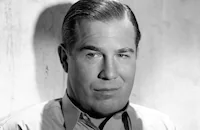
Nat Pendleton
Grace Bradley

Alan Dinehart
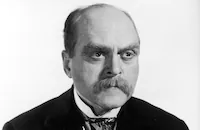
Grant Mitchell
Fred Warren

Warren Hymer

J. Farrell Macdonald
James Donlan
Edwin Maxwell
Frank Sheridan

Fuzzy Knight

Vincent Barnett
David Jack Holt

Charles Sellon

James Burke
Frank La Rue
Matt Mchugh
Frederic Burt
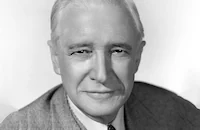
Samuel S. Hinds

Alec B. Francis
James B. Leong
Ivan Linow
Jack Kennedy
Nell Craig
Gertrude W. Hoffman
Tom Herbert
John Ince
Dorothy Bay

De Witt Jennings
Rychard Cramer
John M. Sullivan
George Macquarrie
Sam Adams
Ernie Alexander
Tom Dugan

John Wray
Noel Madison
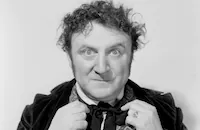
Herman Bing
Michael Visaroff
Dewey Robinson
Constantine Romanoff
Lalo Encinas
Chief Big Tree
Pete Homer
Phil Tead
Ernest Wood
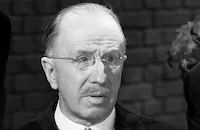
Arthur Hoyt
Charles Williams
Billy Dooley
James Mack
Billy Bletcher
Eddie Fetherston
John Kascier
Bob Chapman
Eddie Boland
Sidney Bracy
Fred Walton
George Davis
Rosa Gore
William C. Irving
Vangie Beilby
Jack Don
Noah Young
Crew
Harry Akst
Miss Anderson
Rex Bailey
Cecil Bardwell
Eddie Bernoudy
Bernard Burton
Hal Carney
E. William Carter
Larry Ceballos
Gil Fones
Bill Fox
William R. Fraser
Ralph Hoege
Ray Jones
Eugene Kornman
Gaylord Lloyd
Harold Lloyd
Harold Lloyd
Walter Lundin
William Macdonald
Walter Mayo
William Mcclellan
John L. Murphy
Alfred Newman
Peg O'neil
Harry Oliver
Joe Reddy
Irving Sindler
Bud Swope
Sam Taylor
Stuart Thompson
Roy Turk
Liell Vedder

Film Details
Technical Specs

Articles
Cat's Paw - THE CAT'S PAW
The Cat's Paw is an atypical story of a naive young man, recently returned home from China, who's targeted as a patsy by corrupt politicians- they want him to run in an election against their own slated candidate. A cat's paw describes one who is used as a tool by another; the origins of the phrase can be traced to an ancient fable of a monkey tricking a cat into reaching into a hot fire for some chestnuts. Ezekiel, as the title suggests, falls for the scam initially but, after unexpectedly winning the election, begins cleaning house, using any method possible. To ultimately topple the rotten regime, he employs the help of an old Chinese man; together they fool the politicians into thinking Cobb has beheaded one of their own for his criminal activity. The crooked men immediately surrender themselves for arrest, and Cobb saves the town! Not your typical Lloydian fare; its underlying political statements were puzzling to film critics.
One popular theory claims Lloyd's unconventional theme of political corruption being overthrown by fascist methods is a satirical response to FDR's New Deal, particularly the National Recovery Administration (NRA). The NRA sought to boost the economy by imposing strict economic controls (which were later found to be unconstitutional.) A divergent theory exists that Lloyd was actually in support of Roosevelt's methods. As pointed out in Harold Lloyd: Master Comedian by Jeffrey Vance (Harry N. Abrams), "like Cobb, Roosevelt might be considered a benevolent, albeit undemocratic, leader, suspending the law for the betterment of the people." The theories persist; Lloyd never revealed which way he was leaning.
Although Lloyd was, as always, center-stage, he had a valuable supporting cast. Una Merkel played his love interest. Beginning her career as Lillian Gish's stand-in, Merkel gained notice in 42nd Street (1933) and for an unforgettable performance in Destry Rides Again (1939), in which she gets into a hair-pulling catfight with Marlene Dietrich. Her career culminated with a Best Supporting Actress nod for Summer and Smoke (1961). George Barbier, a priest-in-training-turned-actor, was best remembered for his character performances in The Man Who Came to Dinner (1942) and Yankee Doodle Dandy (1942). Nat Pendleton, a champion-wrestler-turned-actor, gained popularity for his recurring character in eight Dr. Kildare flicks.
The Cat's Paw garnered positive reviews when released, despite acknowledging that it was a severe departure from Lloyd's traditional style. Variety commented, "in all of his past successes, and especially to the kids, Lloyd has always been known and regarded as the screen's speediest comic, a breath-taking laugh-grabber who specialized in keeping 'em on the edge of their seats. In The Cat's Paw the comedy process is in complete reverse. The picture gets its laughs, all right, but it approaches them at a crawl. Audiences weren't ready for such a radical change: the movie performed dismally at the box office, making another first for Lloyd - he had never lost money on his productions before. Today, The Cat's Paw is highly regarded as a courageous and successful display of the breadth of Lloyd's talents, one that showcases a different side to his working-class hero.
Producer: Harold Lloyd
Director: Sam Taylor
Screenplay: Sam Taylor
Based on a story by Clarence Budington Kelland Art Direction: Harry Oliver
Cinematography: Walter Lundin
Editing: Bernard W. Burton
Music: Alfred Newman
Cast: Harold Lloyd (Ezekiel Cobb), Una Merkel (Petunia Pratt), George Barbier (Jake Mayo), Nat Pendleton (Strozzi).
BW-103m.
by Eleanor Quin

Cat's Paw - THE CAT'S PAW
Quotes
Trivia
Notes
Clarence Budington Kelland's novel first appeared as a serial in The Saturday Evening Post (26 August-30 September 1933). Contemporary sources assert that actor Harold Lloyd had never before worked from a published story, or from a story that was not written expressly for him. An unidentified, contemporary news item in the film's production file at the AMPAS Library noted that Lloyd was going to spend $500,000 on this production. According to modern sources, Lloyd paid $25,000 for the film rights to Kelland's novel, and eventually spent $617,000 on the film. According to Hollywood Reporter news items, Lloyd signed Vincent Lawrence to write the picture's screenplay, and hired Edward Curtis to "assist on dialogue." Their contribution to the completed film has not been confirmed, however. Production was delayed several times due to director Sam Taylor's illness, and according to a Hollywood Reporter news item, Lloyd directed during at least one of Taylor's absences. Hollywood Reporter news items reported that Lloyd borrowed actors Grace Bradley and George Barbier from Paramount, Una Merkel from M-G-M, and musical director Alfred Newman from United Artists.
Modern sources assert that Clyde Bruckman worked on the script, and include the following actors in the cast: Jimmy Dime, Don Brodie, Harry Tenbrook, Kit Guard, George Magrill, Jack Herrick, Paul Panzer, James Mason and Harry Wilson (Gangsters); Louis Natheaux (Headwaiter); Ray Turner (Bootblack); Pat Harmon (Policeman); Tom London (Murph); Frances Morris and Edward Hearn (Radio listeners); Charles McMurphy (Policeman at elevator); Sydney Jarvis (Photo session extra); Walter James (Club doorman); Larry Steers, Pat Somerset and Brooks Benedict (Club patron); and James Wang (Chinese elder).














